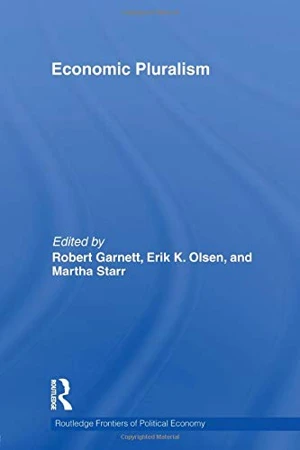✕
Economic Pluralism

Level:
advanced
Blurb
The leading edges of economic thinking in the early 21st century are marked by a nascent pluralism - a positive valuing of difference and complexity - regarding the nature and evolution of human behaviour and economic organization. Economic Pluralism brings these pluralist sensibilities to the fore. Its twenty original essays explore the value and difficulties of pluralism in economic theory, philosophy, institutions, and education. These twenty original essays reflect the maturity and breadth of pluralist scholarship in economics today. The first eight chapters (including essays by Tony Lawson, Diana Strassmann, Frederic Lee, and David Colander) stake out contentious positions on how and why pluralism matters in economic inquiry. The remaining chapters explore the meaning and consequences of pluralism in economic education, institutions, and policies. This volume provides a unique "second generation" discussion of pluralism in economics. Its twenty original essays include contentious disagreements about where and why pluralism matters in economic inquiry as well as creative explorations of pluralism and its consequences in economic systems and in graduate and undergraduate economic education. It is certain to spur further debate over the scope and value of economic pluralism for the 21st century. This volume would be of most interest as a supplementary text for graduate or undergraduate courses that include units on heterodox economics or economic philosophy.
We use cookies on our website. Click on Accept to help us to make Exploring Economics constantly better!

